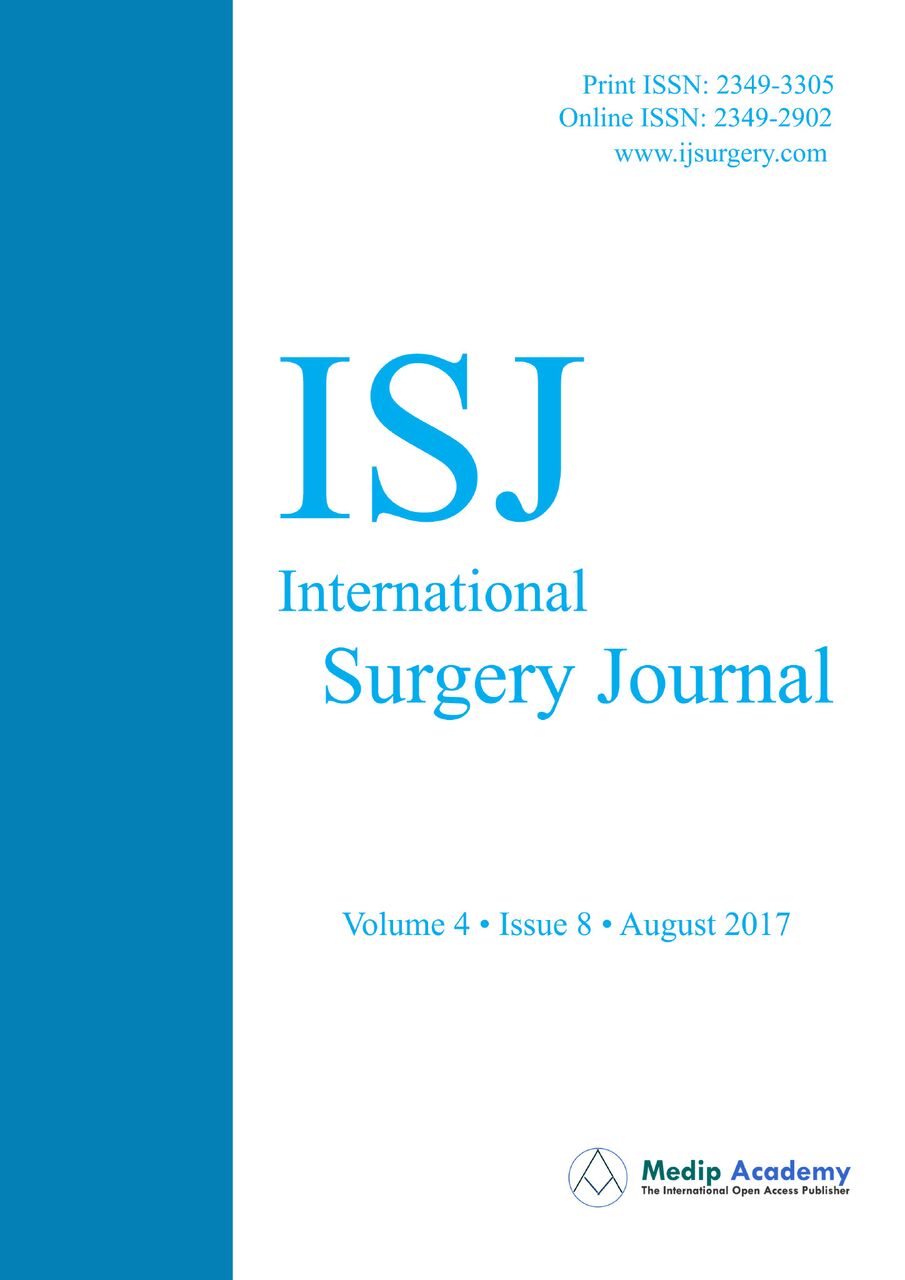Background: Abdominal rectopexy is an appropriate treatment option for full-thickness rectal prolapse (FTRP). Our
aim is to evaluate the effectiveness and surgical outcome of laparoscopic posterior mesh rectopexy in treatment of
FTRP by comparing this procedure with the traditional open approach.
Methods: Thirty consecutive cases with FTRP were included and subjected to abdominal posterior mesh rectopexy
from September 2013 to February 2016 at Sohag University Hospital. Thirteen patients were managed
laparoscopically and 17 patients underwent open posterior mesh repair. Demographic data and surgical outcome were
compared in both groups.
Results: Laparoscopic group showed an earlier tolerance to oral feeding (1.26±0.42 versus 2.16±1.36 days, p=0.03),
and earlier hospital discharge and return to work (5.63±2.91 versus 8.24±4.64 days, p=0.016, 18.28±2.61 versus
28.64±3.82 days, p=0.032, respectively). The mean consumed postoperative analgesics per day was less among
laparoscopic group (1.63±16.2 versus 2.68±34.21 ampoule/day, p=0.012). Incidence of wound infection, wound
dehiscence, prolonged ileus and postoperative chest infection were more in open group. There were significant
postoperative improvement of continence status, rectal bleeding and abdominal pain in each group. Incidence of
postoperative constipation was slightly increased in both groups, but without significant difference. Recurrence
occurred in one case only in open group. There were no mortalities in both groups.
Conclusions: Laparoscopic posterior mesh rectopexy for FTRP can be done safely even in elderly patients. It offers
less postoperative pain, low incidence of postoperative morbidities, early hospital discharge and return to work, in
addition to cosmetically better outcome. Laparoscopic rectopexy has the same functional outcome as open techniqu


